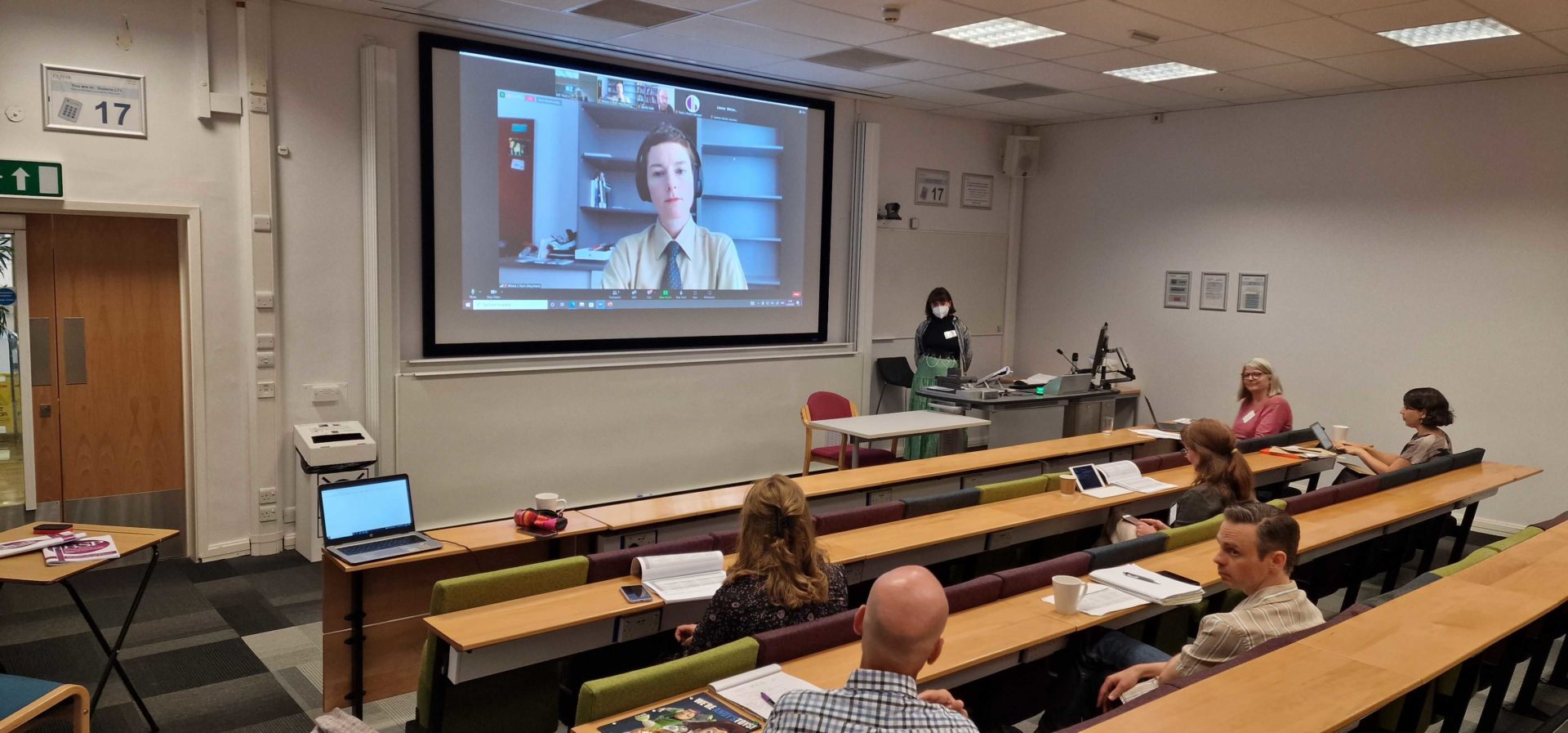From the 30th August – 1st September 2022, the University of Exeter, one of the itDf project locations, hosted the hybrid Annual Conference of the British Society for Phenomenology. Over 100 speakers and delegates working in phenomenology, literature, psychology, psychiatry, bioethics and other areas came together under the theme of Engaged Phenomenology: Explorations of Embodiment, Emotions and Sociality.
The conference was partly sponsored by the itDf-project and hosted three special panels under the banner of ‘Phenomenology, Disability and Technology’ that were organised by itDf’s Luna Dolezal and Cathrin Fischer together with their collaborator Jonathan Paul Mitchell. The aim of these panels was specifically to bring together conversations and new perspectives in DIsability Studies, Phenomenology (of Disability and Illness) and (Disability) Technologies.
On the first panel, Dr Anna Bortolan (Swansea University) talked about people with social anxiety and considered their experience in online social spaces. Dr Bortolan suggested that these spaces can be helpful as there is a reduced experience of bodily objectification and a higher range of control (which are otherwise difficult for those with social anxiety) and ended with a call to learn from the pandemic and create more accessible, hybrid spaces of participation. Pat McConville (Monash Bioethics Centre) spoke on the temporality and experience of artificial hearts, with fascinating considerations of how the heart(beat) mediates our primary, bodily experience of temporality, as well as the temporal effects of artificial hearts interacting with (inaccessible) environments.
On our second panel, Maksim Miroshnichenko (HSE University) troubled the phenomenological notion of ‘incorporation’ and questioned whether incorporation is always straightforwardly painful or pleasurable. In the case of chronic kidney disease, for example, the dialysis machine is often experienced as part of one’s body image, yet also as painful and abject. Dr J.B. (Janna) van Grunsven (TU Delft) followed with a talk bringing together crip technoscience and 4E cognition literature to critique the ableism inscribed into outr technosocial imagination, and politicise unequal access to the world of affordances.
Finally, on the third panel, Adam Davidson (University of South Florida), started us off on the third panel with a reflection on the relationality of walking with his wheelchair-using sun, and how walking can generate ethical reflections on caring relationships and ableist encounters. Rhona J. Flynn and Dr Martin Huth (University of Vienna, Messerli Research Institute Vienna) followed by considering the famous ‘blind man’s cane’ example in phenomenology, criticising the phenomenological uptake of blind cane users of reducing blindness to a single phenomenon and discussing how the white cane affects both perception of the user and the user’s perceptual experience. For our closing talk, Lisanne Meinen (University of Antwerp) sketched a proposal of what it might mean to create video games that enable ‘attuning’ – feeling-with-other’s experience – to and towards neurodivergent experience.

